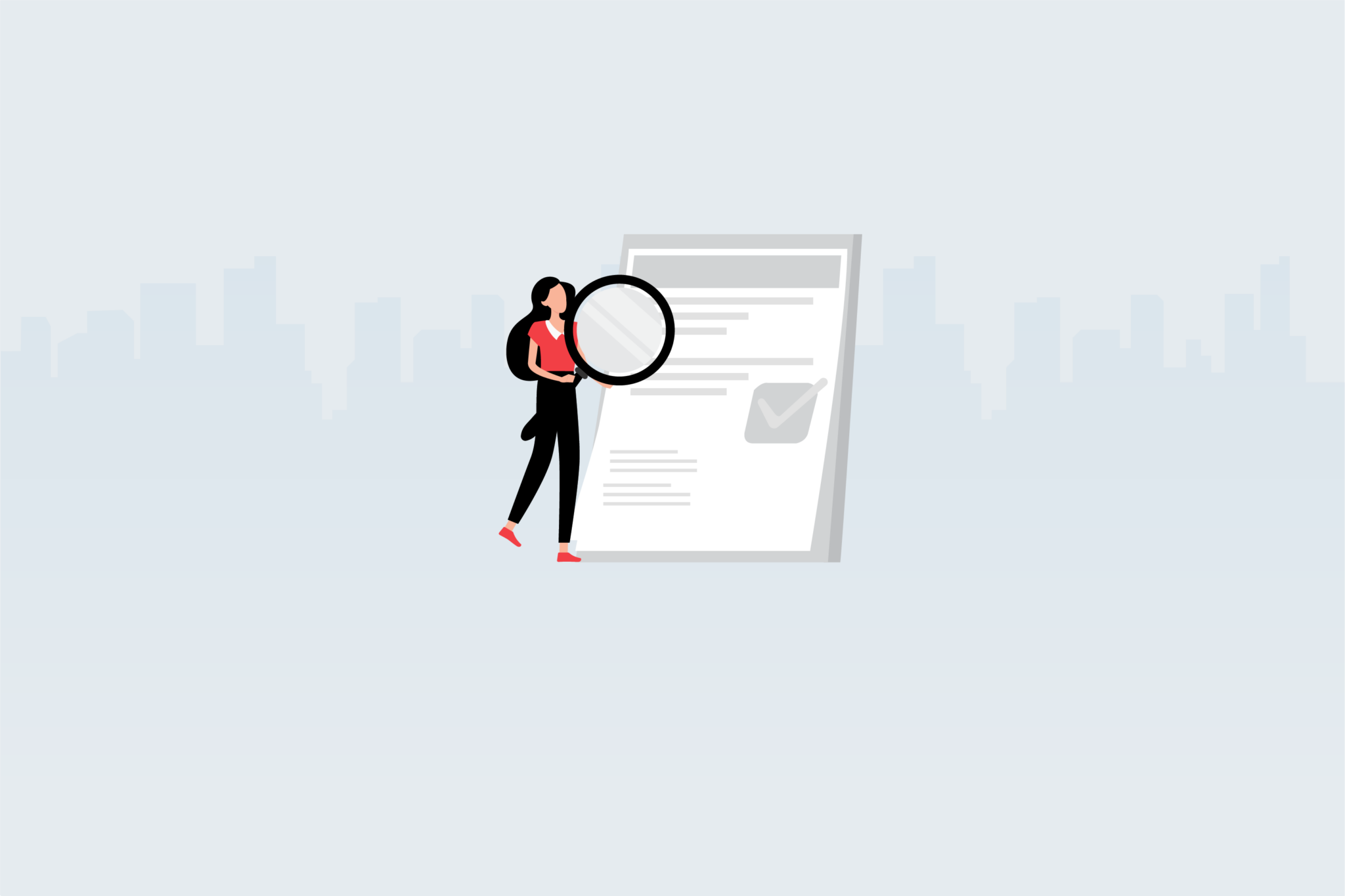In today’s ever-changing regulatory environment, the role of a Regulatory Compliance Specialist has become increasingly critical for organizations across industries. With the evolving landscape of laws, regulations, and industry standards, businesses are recognizing the need to strengthen their compliance efforts to mitigate risks and maintain integrity. The recruiting trend for Regulatory Compliance Specialists is witnessing a significant upswing, as organizations prioritize the identification and management of compliance-related risks.
According to industry analytics, the demand for skilled professionals in this field has grown by X% over the past few years, reflecting the increasing emphasis placed on regulatory compliance. In this competitive landscape, organizations are seeking talented individuals who possess a deep understanding of applicable regulations, a keen eye for detail, strong analytical skills, and the ability to develop and implement effective compliance strategies. In this article, we will explore the key competencies and interview questions to consider when hiring a Regulatory Compliance Specialist, enabling HR professionals and CXOs to make informed hiring decisions that align with their organization’s compliance objectives.
Here are the top 60 Regulatory Compliance Specialist interview questions to ask job applicants:
15 general interview questions for the Regulatory Compliance Specialist
- How do you stay updated on relevant laws, regulations, and industry standards in your area of expertise?
- Can you provide an example of a time when you successfully identified and assessed compliance risks within an organization?
- How do you ensure that policies and procedures are aligned with applicable regulations and standards?
- Describe your experience in developing and implementing compliance programs or initiatives.
- How do you conduct compliance audits or assessments to identify areas of improvement?
- Can you give an example of a situation where you had to navigate conflicting regulatory requirements? How did you handle it?
- How do you monitor and track changes in regulations and ensure timely updates to compliance practices?
- Describe your experience in conducting investigations related to compliance violations or incidents.
- How do you collaborate with other departments or stakeholders to promote a culture of compliance throughout the organization?
- Can you share an example of a complex compliance project you managed from start to finish?
- How do you communicate compliance requirements and expectations to employees and ensure their understanding?
- Describe a situation where you had to handle a compliance issue with limited resources or tight deadlines. How did you manage it?
- How do you maintain accurate records and documentation to demonstrate compliance efforts?
- Can you provide an example of a time when you had to make a difficult decision regarding compliance? How did you approach it?
- How do you stay proactive in identifying emerging compliance trends and potential impacts on the organization?
5 sample answers to general interview questions for the Regulatory Compliance Specialist
- How do you stay updated on relevant laws, regulations, and industry standards in your area of expertise?
Look for: Continuous learning and staying up-to-date with regulatory changes and industry trends.
Example Answer: “As a Regulatory Compliance Specialist, I understand the importance of staying current with regulatory developments. I actively engage in ongoing professional development by attending industry conferences, webinars, and workshops. I also subscribe to regulatory newsletters and publications to receive regular updates on changes in laws and regulations. Additionally, I participate in professional forums and online communities where experts and professionals share insights and discuss emerging trends. By continuously expanding my knowledge base, I ensure that I am well-informed and equipped to navigate the evolving regulatory landscape.”
- Can you provide an example of a time when you successfully identified and assessed compliance risks within an organization?
Look for: Ability to identify and assess compliance risks, attention to detail, and problem-solving skills.
Example Answer: “In my previous role as a Regulatory Compliance Specialist, I conducted a comprehensive risk assessment for a multinational organization. I reviewed existing policies, procedures, and internal controls, identifying potential compliance gaps and vulnerabilities. Through collaboration with key stakeholders, I conducted interviews, reviewed documentation, and performed data analysis to assess the effectiveness of controls in mitigating compliance risks. I presented my findings in a detailed report, highlighting areas of concern and providing actionable recommendations to strengthen compliance measures. This proactive approach enabled the organization to address potential risks proactively, enhancing their compliance posture and minimizing exposure to regulatory penalties.”
- How do you ensure that policies and procedures are aligned with applicable regulations and standards?
Look for: Ability to interpret regulations, attention to detail, and knowledge of policy development.
Example Answer: “To ensure alignment between policies and applicable regulations, I begin by thoroughly analyzing the regulatory requirements specific to the organization’s industry. I review relevant laws, regulations, and industry standards, paying close attention to the finer details and nuances. Using this information, I work collaboratively with cross-functional teams to develop and update policies and procedures that encompass the necessary compliance controls. I also engage legal counsel and subject matter experts when needed to validate the accuracy and completeness of the policies. Regular policy reviews and audits help to ensure ongoing compliance and provide opportunities for continuous improvement.”
- Describe your experience in developing and implementing compliance programs or initiatives.
Look for: Experience in program development, project management skills, and knowledge of compliance frameworks.
Example Answer: “In my previous role, I was responsible for developing and implementing a compliance program for a healthcare organization. I began by conducting a thorough assessment of existing compliance practices and identified areas for improvement. Using industry best practices and leveraging established compliance frameworks, I designed a comprehensive compliance program tailored to the organization’s needs. This involved developing policies and procedures, creating training materials, establishing monitoring and reporting mechanisms, and implementing an effective communication strategy. I collaborated with stakeholders across departments to ensure buy-in and adherence to the program. Regular program evaluations and audits were conducted to assess its effectiveness and make necessary adjustments. The successful implementation of this program resulted in improved compliance awareness, reduced compliance risks, and enhanced overall organizational integrity.”
- How do you monitor and track changes in regulations and ensure timely updates to compliance practices?
Look for: Knowledge of regulatory monitoring tools and processes, attention to detail, and ability to adapt.
Example Answer: “To effectively monitor and track changes in regulations, I utilize a combination of regulatory tracking tools, such as automated alerts and subscriptions to regulatory update services. I conduct regular reviews of regulatory websites and publications to stay informed about new or amended regulations. I also network with industry professionals and attend regulatory seminars and conferences to gain insights into upcoming changes. When a new regulation is identified, I assess its impact on the organization and collaborate with relevant stakeholders to implement necessary updates to policies, procedures, and training materials. I maintain a centralized repository of compliance documentation and ensure that it is readily accessible to the appropriate teams. By staying vigilant and proactive, I ensure that our compliance practices remain up-to-date and aligned with the latest regulatory requirements.”
15 behavioral interview questions for a Regulatory Compliance Specialist
- Tell me about a time when you had to navigate conflicting regulatory requirements. How did you handle it?
- Describe a situation where you faced resistance from stakeholders regarding compliance initiatives. How did you overcome it?
- Can you provide an example of a complex compliance project you managed from start to finish? What were the key challenges and how did you address them?
- Tell me about a time when you identified a compliance gap within an organization. How did you address the issue and implement corrective measures?
- Describe a situation where you had to investigate a compliance violation or incident. How did you handle the investigation process and ensure a fair and effective resolution?
- Can you share an example of a time when you had to make a difficult decision regarding compliance? How did you approach it and what were the outcomes?
- Tell me about a situation where you had to collaborate with cross-functional teams to ensure compliance. How did you establish effective communication and alignment?
- Describe a time when you successfully managed a regulatory audit or inspection. How did you prepare for it and what steps did you take to ensure a smooth process?
- Can you provide an example of a time when you had to develop or update policies and procedures to align with new regulations? How did you ensure accuracy and compliance?
- Tell me about a situation where you had to deliver compliance training to a diverse group of employees. How did you tailor the training to meet their needs and ensure understanding?
- Describe a time when you identified and implemented process improvements to enhance compliance efficiency. What was the outcome of your efforts?
- Can you share an example of a time when you had to handle a compliance issue with limited resources or tight deadlines? How did you manage the situation effectively?
- Tell me about a time when you proactively identified potential compliance risks and took steps to mitigate them. How did your actions contribute to overall compliance effectiveness?
- Describe a situation where you had to balance compliance requirements with business objectives. How did you find a middle ground and ensure both were adequately addressed?
- Can you provide an example of a time when you faced a major compliance challenge and had to adapt quickly to changing circumstances? How did you handle the situation and ensure compliance was maintained?
5 sample answers to behavioral interview questions for the Regulatory Compliance Specialist
- Tell me about a time when you had to navigate conflicting regulatory requirements. How did you handle it?
Look for: Ability to analyze and prioritize regulations, critical thinking skills, and ability to find a solution.
Example Answer: “In a previous role, I encountered a situation where two regulatory requirements seemed to contradict each other. One regulation required a specific data retention period, while another mandated the deletion of certain data after a specific timeframe. To address this conflict, I thoroughly researched and analyzed both regulations, considering their intent and legal implications. I consulted with legal counsel and regulatory experts to gain additional insights. Ultimately, I proposed a solution that involved segregating the data and applying the appropriate retention and deletion policies based on the specific data types and the respective regulations. This approach allowed us to comply with both requirements without compromising the organization’s legal obligations.”
- Describe a situation where you faced resistance from stakeholders regarding compliance initiatives. How did you overcome it?
Look for: Strong communication skills, influencing and persuasion abilities, and ability to gain buy-in from stakeholders.
Example Answer: “During a compliance initiative, I faced resistance from a group of stakeholders who were hesitant to adopt the new procedures and controls. To address this, I took a proactive approach by organizing meetings and workshops to explain the rationale behind the initiative and its benefits for the organization. I listened to their concerns and provided clarifications, ensuring that their perspectives were heard and considered. I also conducted training sessions to help stakeholders understand the compliance requirements and how they would impact their work. By building relationships, addressing concerns, and emphasizing the importance of compliance, I was able to gradually gain buy-in and cooperation from the stakeholders, leading to successful implementation.”
- Can you provide an example of a complex compliance project you managed from start to finish? What were the key challenges and how did you address them?
Look for: Project management skills, ability to handle complexity, problem-solving abilities, and attention to detail.
Example Answer: “In a previous role, I was responsible for managing a complex compliance project involving the implementation of a new data protection framework across multiple departments. The key challenge was ensuring that all departments understood and adhered to the new requirements while minimizing disruption to their existing processes. To address this, I developed a comprehensive project plan, clearly outlining the project objectives, timelines, and milestones. I engaged with department heads and conducted training sessions to educate them about the framework and its implications. I also established regular communication channels to address any issues or questions that arose. By closely monitoring progress, providing ongoing support, and maintaining open lines of communication, I successfully completed the project within the designated timeline, achieving widespread compliance across the organization.”
- Tell me about a time when you had to investigate a compliance violation or incident. How did you handle the investigation process and ensure a fair and effective resolution?
Look for: Investigative skills, attention to detail, the ability to remain impartial, and the ability to implement corrective actions.
Example Answer: “In a previous role, I was tasked with investigating a compliance violation related to an employee’s unauthorized access to sensitive data. To ensure a fair and effective investigation, I followed established protocols, including conducting interviews with relevant individuals, reviewing system logs, and examining documentation. I maintained strict confidentiality throughout the process to protect the integrity of the investigation. Once I gathered all the necessary information, I analyzed the findings objectively and identified the root cause of the violation. I presented a detailed report to management, highlighting the findings and recommending appropriate disciplinary actions. Additionally, I collaborated with the IT department to implement enhanced access controls and provided additional training to employees to prevent similar incidents in the future.”
- Can you share an example of a time when you had to develop or update policies and procedures to align with new regulations? How did you ensure accuracy and compliance?
Look for: Policy development skills, knowledge of regulatory requirements, attention to detail, and ability to ensure implementation.
Example Answer: “In my previous position, I was responsible for updating our organization’s privacy policies to align with the General Data Protection Regulation (GDPR). To ensure accuracy and compliance, I conducted thorough research on the requirements and engaged with legal counsel to gain insights into the regulatory landscape. I collaborated with cross-functional teams, including legal, IT, and HR, to develop comprehensive policies and procedures that addressed the key principles of the GDPR. I conducted extensive reviews, seeking input from subject matter experts and ensuring that all stakeholders were aligned. To ensure successful implementation, I developed a detailed communication plan and conducted training sessions to educate employees on the updated policies. Regular audits and monitoring were implemented to verify compliance and identify any areas for improvement.”
15 personality interview questions for the Regulatory Compliance Specialist
- Describe a situation where you had to demonstrate attention to detail in your work as a compliance professional. How did you ensure accuracy and precision?
- How do you stay organized and manage multiple compliance tasks and deadlines effectively?
- Tell me about a time when you had to work under pressure to meet a compliance deadline. How did you handle the situation?
- How do you approach building and maintaining strong working relationships with regulators and external stakeholders?
- Can you describe a situation where you had to adapt to changing compliance regulations? How did you stay informed and update your practices?
- Describe a time when you had to make a difficult decision that involved balancing compliance requirements with business objectives. How did you approach it?
- How do you ensure that all employees understand the importance of compliance and adhere to policies and procedures?
- Can you share an example of a situation where you had to deal with a challenging ethical dilemma in your compliance work? How did you resolve it?
- How do you demonstrate a commitment to ongoing professional development in the field of regulatory compliance?
- Describe a time when you had to communicate complex compliance concepts to non-compliance professionals. How did you ensure understanding and engagement?
- How do you handle situations where there is ambiguity in regulatory requirements? How do you seek clarity and make informed decisions?
- Can you provide an example of a time when you had to exercise discretion and maintain confidentiality while handling sensitive compliance information?
- How do you ensure that your compliance efforts are aligned with the organization’s values and ethical standards?
- Tell me about a situation where you had to collaborate with different departments or teams to achieve compliance goals. How did you approach it and what were the outcomes?
- How do you handle situations where you discover potential compliance risks or violations? How do you address them and mitigate future risks?
5 sample answers to personality interview questions for Regulatory Compliance Specialist
- How do you prioritize and manage your workload as a Regulatory Compliance Specialist? What strategies do you use to stay organized and meet deadlines?
Look for: Strong organizational skills, ability to prioritize tasks, and effective time management techniques.
Example Answer: “As a Regulatory Compliance Specialist, I understand the importance of managing multiple tasks and deadlines efficiently. To prioritize my workload, I typically start by assessing the urgency and criticality of each task. I create a comprehensive task list and use tools such as a calendar or project management software to track deadlines. I also break down complex projects into smaller, manageable steps to ensure progress and timely completion. Additionally, I regularly communicate and collaborate with team members and stakeholders to align expectations and manage priorities effectively.”
- How do you approach building relationships and collaborating with stakeholders in regulatory compliance initiatives? Give an example of a successful collaboration effort.
Look for: Strong interpersonal skills, the ability to build rapport, and experience in cross-functional collaboration.
Example Answer: “In my role as a Regulatory Compliance Specialist, building positive relationships with stakeholders is crucial to achieving compliance objectives. I believe in open communication, active listening, and empathy when working with stakeholders. One example of a successful collaboration effort was during the implementation of a new compliance framework. I proactively reached out to different departments, conducted meetings, and sought their input to understand their unique compliance needs. By actively involving them in the decision-making process and addressing their concerns, I gained their trust and commitment. This collaborative approach resulted in a smoother implementation, with increased buy-in and cooperation from stakeholders.”
- How do you handle situations where there is ambiguity or uncertainty in regulatory requirements? Give an example of a time when you encountered such a situation and how you navigated through it.
Look for: Adaptability, critical thinking skills, and the ability to seek clarity and make informed decisions.
Example Answer: “Ambiguity or uncertainty in regulatory requirements is not uncommon, and it requires a systematic approach to address. In such situations, I first conduct thorough research and review available regulatory guidance or consult with industry experts. I also leverage professional networks and engage with regulatory agencies when necessary to seek clarification. An example of navigating through ambiguity was when a new regulation was introduced with vague guidance on implementation. I proactively reached out to the regulatory authority, attended industry conferences, and collaborated with colleagues to gather insights. By synthesizing the information obtained, I developed an internal compliance strategy that aligned with the spirit of the regulation while ensuring practical implementation within our organization.”
- Describe a time when you faced a compliance-related challenge that required you to make a difficult decision. How did you approach it and what was the outcome?
Look for: Ethical decision-making, the ability to assess risks and sound judgment.
Example Answer: “As a Regulatory Compliance Specialist, I encounter complex situations that require balancing compliance requirements and business objectives. In one particular instance, I identified a potential compliance risk that could have had financial implications for the company if not addressed promptly. After conducting a thorough risk assessment, I presented the findings to senior management, highlighting the potential consequences and recommending mitigation measures. Despite initial resistance from some stakeholders, I maintained transparency, provided supporting evidence, and explained the long-term benefits of addressing the issue proactively. Eventually, my recommendation was accepted, and the necessary actions were taken to mitigate the risk, ensuring both compliance and business continuity.”
- How do you demonstrate a commitment to continuous learning and professional development in the field of regulatory compliance?
Look for: Desire for growth, proactive learning attitude, and involvement in industry-related activities.
Example Answer: “As a Regulatory Compliance Specialist, I believe it is crucial to stay updated with the evolving regulatory landscape and industry best practices. To demonstrate my commitment to continuous learning, I regularly participate in webinars, workshops, and conferences related to regulatory compliance. I also actively engage with professional organizations and forums to connect with peers, exchange knowledge, and stay informed about emerging trends. Additionally, I make it a habit to read relevant publications and subscribe to regulatory newsletters to keep up with regulatory updates. Furthermore, I seek opportunities to enhance my skills through certifications and training programs specific to regulatory compliance.”
When should you use skill assessments in your hiring process for Regulatory Compliance Specialist?
Skill assessments can be valuable tools in the hiring process for a Regulatory Compliance Specialist. These assessments allow you to evaluate candidates’ specific skills and knowledge required for the role, ensuring they have the necessary expertise to navigate complex compliance landscapes. By incorporating skill assessments, you can make more informed hiring decisions and select candidates who are well-equipped to handle regulatory challenges.
Assessments are important because they provide an objective and standardized way to measure a candidate’s proficiency in key areas such as regulatory compliance knowledge, risk assessment, policy development, and ethical decision-making. They allow you to assess the practical application of skills rather than relying solely on resumes and interviews.
Various assessments can be used to evaluate the skills of Regulatory Compliance Specialists. These may include:
- Compliance Knowledge Assessment
This assessment tests candidates’ understanding of relevant regulatory frameworks, industry standards, and compliance best practices.
- Case Studies or Scenario-based Assessments
These assessments present candidates with real-life compliance scenarios and require them to analyze, identify risks, and propose appropriate solutions.
- Policy Development Exercises
Candidates can be given a sample compliance issue or policy gap and asked to develop comprehensive policies and procedures to address the situation.
- Ethical Decision-Making Assessments
These assessments assess a candidate’s ethical decision-making abilities by presenting them with ethical dilemmas commonly faced in compliance roles.
- Communication and Stakeholder Management Exercises
These assessments evaluate candidates’ ability to effectively communicate complex compliance concepts and build relationships with stakeholders.
By incorporating skill assessments, you can gain deeper insights into candidates’ capabilities and identify the best fit for your organization’s regulatory compliance needs. These assessments help mitigate hiring risks, enhance the quality of hires, and ensure regulatory compliance expertise within your team.
Use our interview questions and skill tests to hire talented Regulatory Compliance Specialist
Unlock the potential of your hiring process with Testlify’s comprehensive skill assessments and interview questions specifically designed for Regulatory Compliance Specialist.
Our extensive test library offers a wide range of assessments, including cognitive function, personality, situational judgment, programming, and more. By leveraging these assessments, you can objectively evaluate candidates’ abilities, ensuring you shortlist the most talented individuals efficiently.
To further enhance your hiring process, we invite you to book a free 30-minute live demo. Our expert team will guide you through the platform, showcasing relevant skill tests tailored to your hiring needs. With our support, you can streamline candidate selection, saving valuable time and resources.
Ready to find the perfect fit for your Regulatory Compliance Specialist role? Testlify provides the tools you need to make informed hiring decisions. Explore our skill assessments and interview questions today to uncover exceptional talent for your team.







